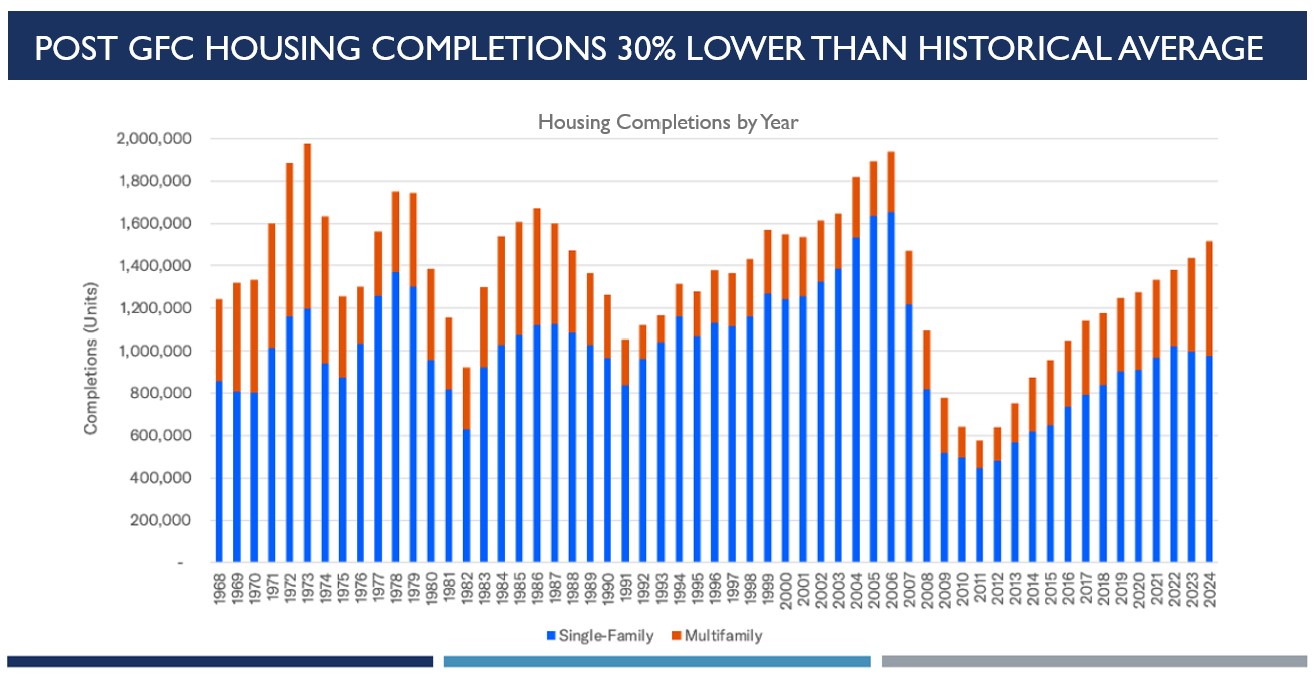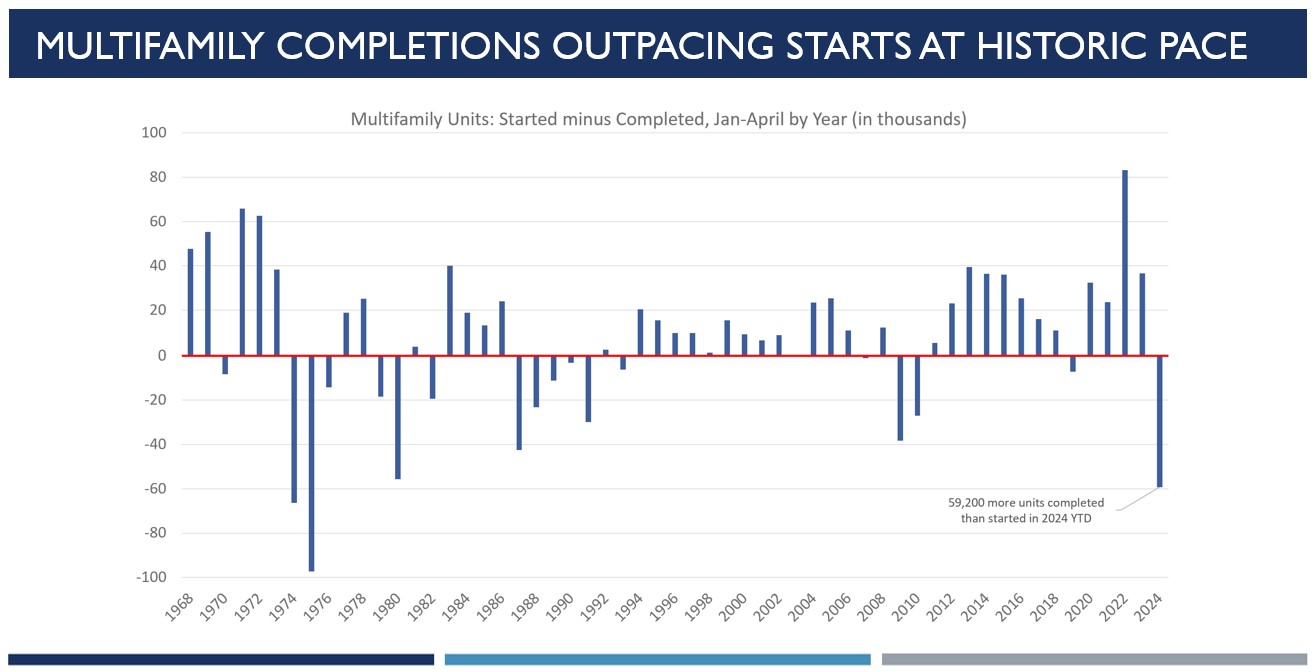Research

What is BTR?
BTR developments are new residential communities, increasing U.S. housing supply and helping to address the nation’s housing shortage. BTR communities have the characteristics of single-family homes, built for renters desiring features not typically offered with multifamily properties. Most BTR properties… Read More

One Good Year Does Not Solve America’s Housing Shortage
Moody's Analytics
From 1968 to 2006, single-family completions averaged approximately 1.1 million units over this 39-year period. However, from 2007 to 2023, the average was closer to roughly 765 thousand units, highlighting homebuilders’ significant pullback in new construction coming out of the GFC. Read More

Demand could exceed supply again by 2025, which would in turn put upward pressure on rents.
Source link: https://x.com/jayparsons/status/1791103409317151202/photo/1
Looming Multifamily Oversupply Likely Will Be Short-Lived
CBRE
Even with a surplus of multifamily units over the short-term, CBRE forecasts that an additional 2.3 million new units will be needed nationwide to maintain healthy market fundamentals over the next 10 years. Once the largest portion of the delivery wave has concluded in 2024, the nation will still need nearly 200,000 additional units annually to maintain proper supply and demand balance. Read More
A Timeline of Affordability: How Have Home Prices and Household Incomes Changed Since 1960?
Clever
Since the 1960s, however, the difference between home prices and income has nearly doubled. By 2017, the nationwide price-to-income ratio was 3.6, showing over 3.5 years of household income was necessary to purchase a house. In fact, the nationwide price-to-income ratio hasn't been at a healthy balance since the 1990s. Homes are increasingly unaffordable, leading to unstable housing markets where demand can't meet supply. Read More
The Surge in Household Growth and What it Suggests About the Future of Housing
Joint Center for Housing Studies at Harvard University
As rising interest rates cooled demand for housing in 2022, new data on household growth is helping provide a better picture of just how hot demand had been between 2019 and 2021. Read More
